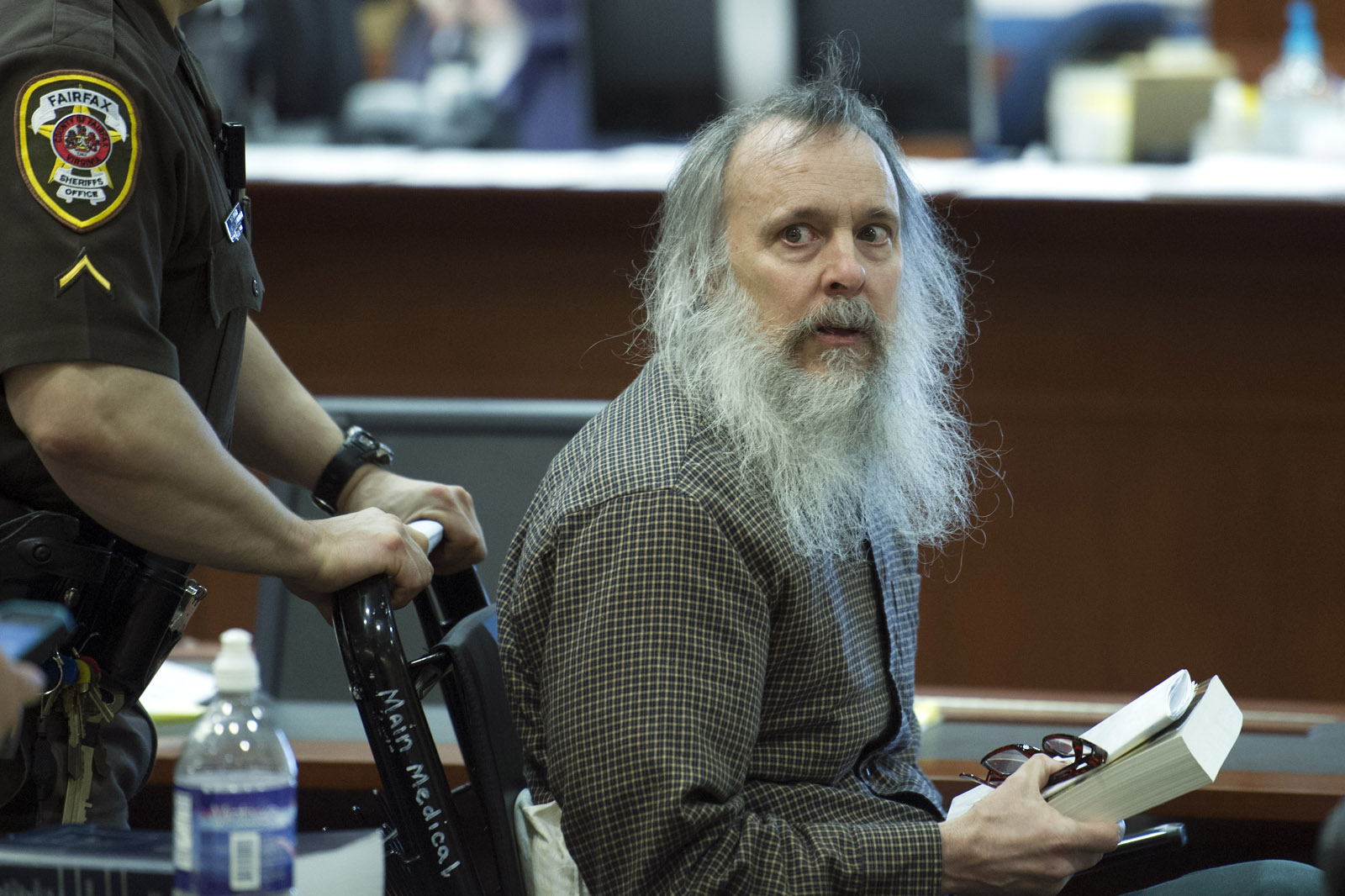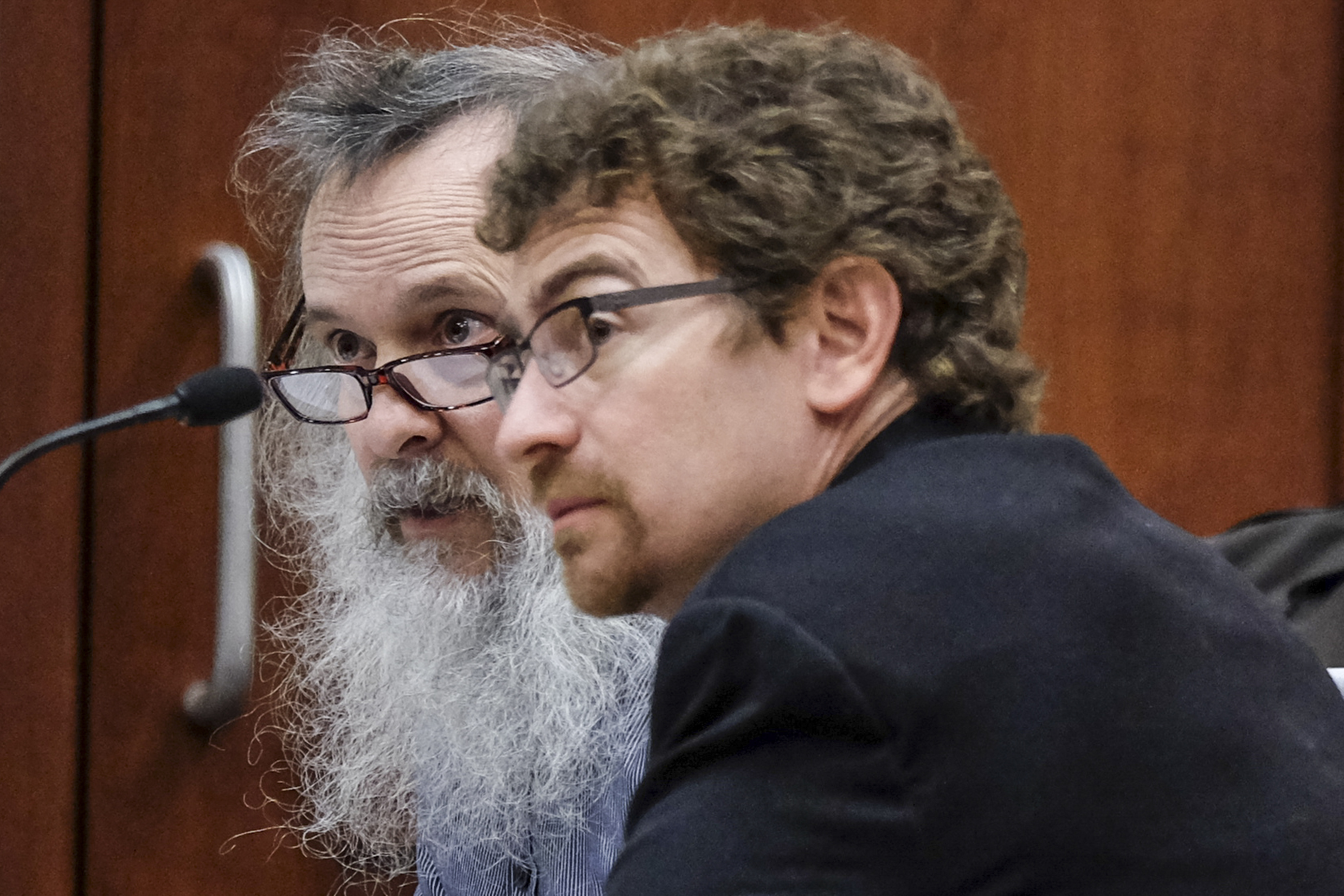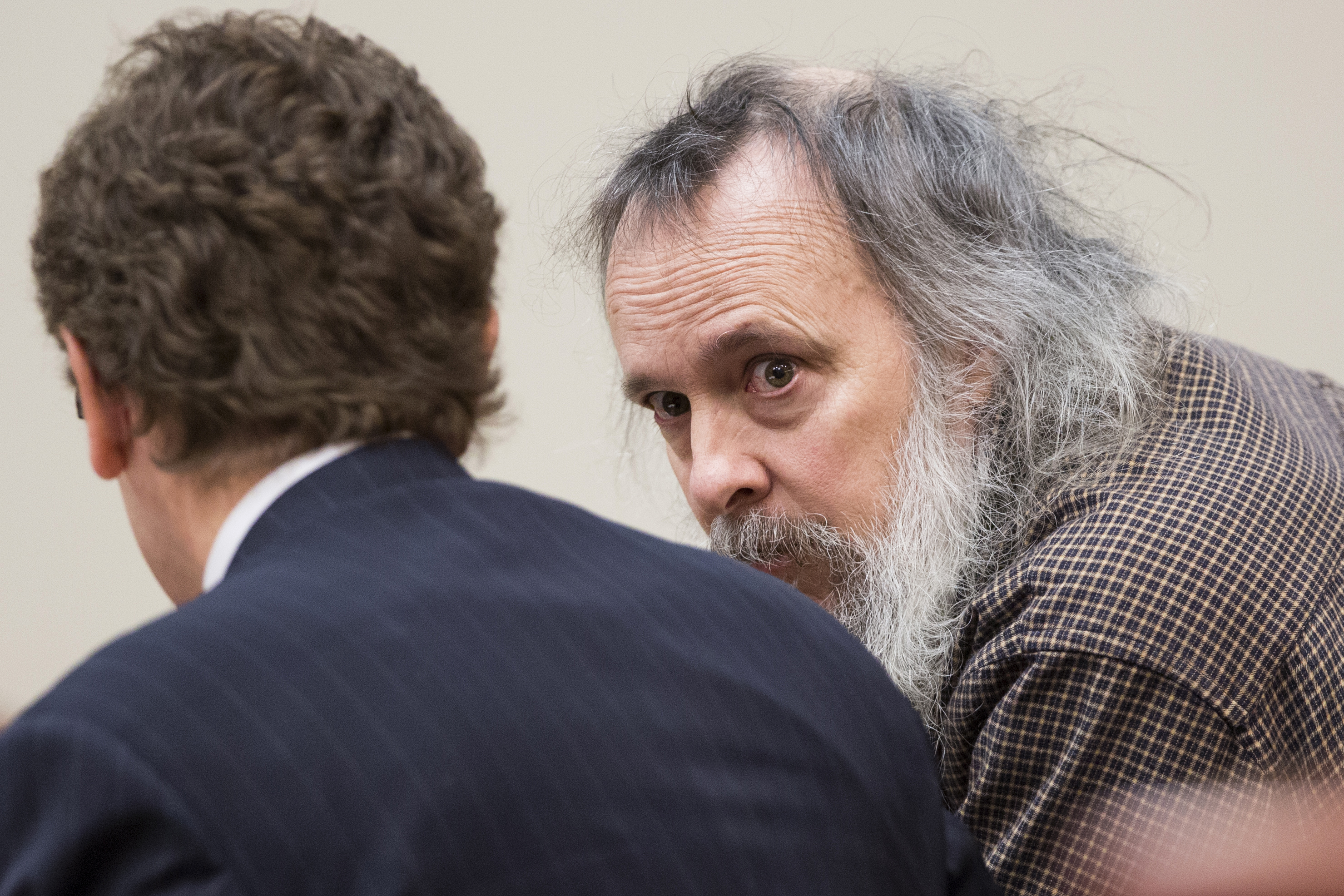FAIRFAX, Va. — A former candidate for Alexandria mayor, known for his erratic behavior, has been found guilty of murder in the killings of three city residents during the span of 11 years and will face at least one life sentence in prison for the crimes that terrified the community.
A Fairfax County jury found Charles Severance, 55 of Ashburn, guilty of all 10 counts including two capital murder charges for the shootings of Ron Kirby and Ruthanne Lodato and one first-degree murder charge for the shooting of Nancy Dunning.
The jury recommended that he serve three life sentences for the murder charges plus another 48 years for the gun and malicious wounding charges and that he pay $400,000 in fines. Virginia does not grant the possibility of parole and prosecutors did not seek the death penalty, believing Severance’s mental health would make a conviction unlikely.
Prosecutors called Severance a “monster” who delivered chaos and terror upon the city while making their final pitch to jurors before they considered their recommended sentence. Defense attorneys blamed the killings on Severance’s mental health, pointing to a prior schizophrenia diagnosis.
Judge Randy Bellows will set Severance’s sentence in January.
The 12-person jury deliberated for more than two days to reach its verdict, which followed several weeks of testimony and evidence presentations. The verdict was read in court late Monday morning as Severance looked straight ahead, showing no emotion. His parents, Stan and Virginia Severance, sat stoically behind their son as they listened to the jury’s decision.
In a statement released afterward, they said they respect the verdict and offered their sympathies to the three families. “Our family is strong. We will pursue and continue on,” the statement read.
The victims’ families in turn thanked police and prosecutors for their work.
“We all know the guilty verdict brings us a sense of relief and some justice for all families. However it will never compensate for the loss of our loved ones,” said Marilyn Kirby, Ron Kirby’s daughter.
For the Dunning family, the conviction also lifts the cloud of suspicion that followed their father, the former Sheriff Jim Dunning, to his grave. He was once considered a suspect in his wife’s death.
Severance was charged in the three killings last year, months after Lodato was killed at the front door of her home. A sketch and tips lead police to Severance, who was initially arrested on unrelated charges in West Virginia. Kirby and Dunning each lived about a mile from Lodato in the same affluent area of the city.
The prominent residents each had deep ties to the community. And they were all killed in a similar manner: at the same time of day, at their front door, without evidence of a break-in, and by the same type and brand of .22-caliber bullets.
Prosecutors said that Severance killed all three out of revenge for losing custody of his son in 2001. He wrote extensively about his hatred for law enforcement, the Alexandria court system and even the city’s “elite” class. He also wrote about his dismay with social workers and even the mental health system. His writings featured prominently in this trial.
But it was the testimony of Dorcas Franko and her courtroom identification of Severance as the man who shot her and who also killed Lodato that was the key to winning over jurors, said Alexandria Commonwealth’s Attorney Bryan Porter.
“She really stepped up to the plate and showed a bravery that is really uncommon,” Porter said.
Franko, who cared for Lodato’s mother, survived her injuries and helped police develop a sketch of her attacker, which proved to be the key to cracking open the three homicide cases. The bearded man triggered tips that led police to Severance, whose appearance was similar to the man in the sketch.
The size and shape of the facial hair seen by Franko and other witnesses was a critical issue for defense attorneys, who tried to argue that some other bearded man was responsible, not Severance.
His defense team said his writings show a man who has struggled with mental illness and loved history, but did not confess to his guilt. They said that circumstantial evidence strung the case together, eye witness testimony was not reliable, and that no forensic evidence placed Severance at any of the crime scenes.
He did not use insanity as a defense and his team of lawyers tried to argue he simply was not responsible.
His case was transferred to Fairfax County due to the intense pretrial publicity surrounding the killings and the charges. Alexandria’s judges recused themselves from hearing the case because Lodato’s brother was a city judge.








